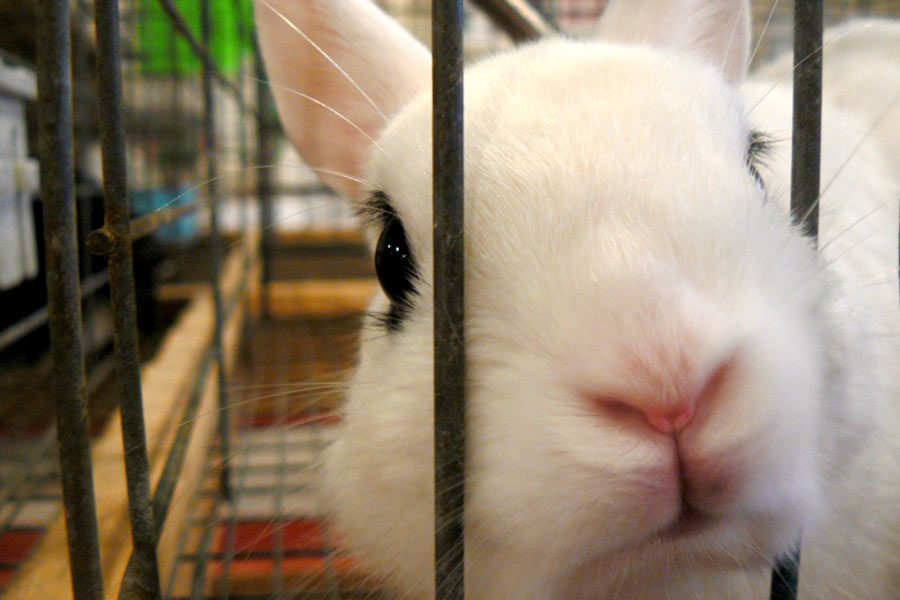Speaking for those who are unable
Animal testing for cosmetics is inhumane
May 9, 2017
In a world consumed with the latest makeup trends and red carpet looks, sometimes we forget to acknowledge what truly matters. We get caught up in the mirror, spending hours obsessing over the perfect lipstick color or avert our eyes to the nearest window reflection to see if our hair is still in the exact same shape. No, there is nothing wrong with looking our best and making an entrance, however, staying humble most certainly matters.
It matters because in a world filled with vanity, it often comes with a price. We as humans may not always directly experience the consequences or the backlashes of other’s decisions, but I can guarantee that it is felt elsewhere.
Across the world, over a hundred million animals are killed during laboratory experiments involving chemical, cosmetic or biological research. In the United States alone, over 25 million animals are subject to laboratory conditions that are isolated and confined. These creatures have no voice, but yet they can feel pain and they are capable of emotion. Animal cruelty, no matter how small the act or how large the benefit, is undeniably inhumane.
No doubt first world countries have the ability to avoid animal testing due to rapidly evolving technology. With biotechnology, scientists are now able to successfully acquire accurate data from human tissues and cells using vitro methods; these experiments are done in glass vials with samples supplied from volunteers or patients. Companies can also employ methods that utilize advanced computer modeling systems, or enable stem cell research.
The only protection the law offers against animal testing is the Animal Welfare Act, which ensures standards upholding treatment of only select species while in research, transport or exhibition. The act allows for private institutions to provide their own regulations and guidelines, instead of demanding equal care across the board.
Despite the looming picture, there are numerous avenues on which you can protest animal cruelty. For starters, boycott companies that pursue these routes and find other manufacturers that are organic and certified animal cruelty free.
The Leaping Bunny logo, founded by the Coalition for Consumer Information on Cosmetics, can be found on any product that has pledged to remain humane in their business affairs. Goods with this label have been registered with organizations such as the Humane Society of the United States and People for the Ethical Treatment of Animals.
Other actions can be taken against experimentation such as volunteering your time at the local shelters, or simply adopting. You can even write letters and call companies to make pleads, explaining why their procedures are outdated. Supporting local and national legislation, such as the Humane Cosmetics Act, as well as reporting abuse are all methods that support the cause.
Here is a link to a list of certified animal cruelty free companies: http://www.leapingbunny.org/guide/brands




















